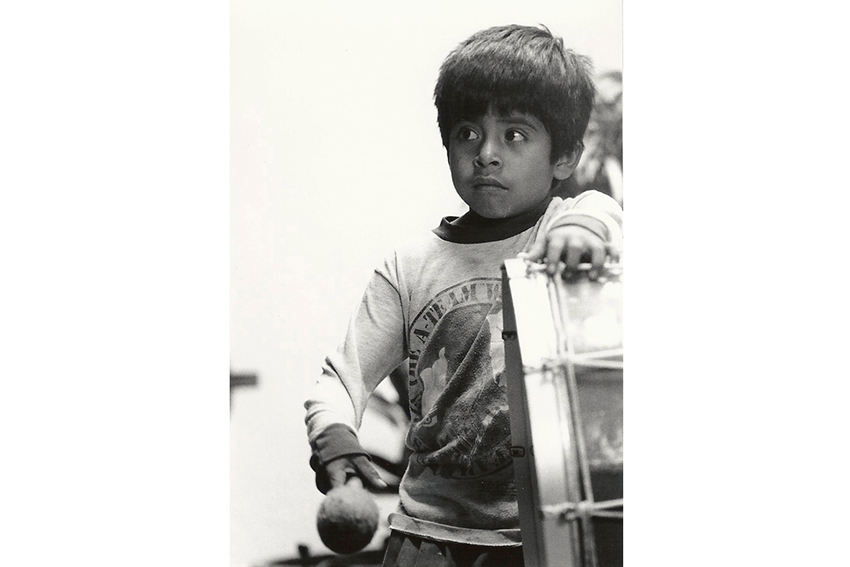It wasn’t until she returned to her childhood home that filmmaker and UT alumna Marcela Morán found the focus of her first six films.
Growing up, Morán and her sisters crossed the border every day to go to school. She was familiar with the dualities that came with life on the border and accepted them. But after 10 years spent away from Nuevo Laredo, her return allowed her to notice things she had never questioned before.
She saw migrants being deported on the bridge, and she watched as her neighbor collected clothes to take to the local immigrant shelter.
“I think being away for a decade allowed me to come back with fresh eyes,” Morán said. “Growing up, I didn’t realize there were so many stories to tell. I saw how my hometown had changed and how it was full of these stories that weren’t being told by mainstream media.”
Her first documentary, a 10-minute short titled “Casa Del Migrante,” focused on a migrant shelter in her hometown. Shot on her personal camcorder, Morán interviewed several migrants to learn about their journeys across the border.
Through their accounts, Morán said she was able to tackle a different angle than traditional news outlets by including their hopes for a life in America and also the violations committed against them by Mexican authorities throughout their travels.
“We have journalists who come here and do their story and leave,” Morán said. “I just felt compelled to stay and continue telling stories and working on projects about the border.”
Since “Casa,” Morán has worked on several other films, from “Audiencia,” which covered the growing popularity of Lucha Libre in the U.S., to her latest project, “Jornaleras,” which follows three immigrant women working in New York. While working on each project, Morán said she sometimes felt out of place as a female filmmaker.
“A female with a camera is sort of suspicious because, in Latin America, women are supposed to be at home with their children,” Morán said. “I think my biggest challenge was how to explain myself as a filmmaker.”
Morán said she was always encouraged by her family members to follow an unconventional path. Her mother grew up in a traditional family, wanting to attend college, but wasn’t allowed to leave home to pursue higher education. Once her mother had daughters, she continually encouraged Morán to go out and pursue her dreams.
“I owe [my career] to the the women in my family,” Moran said. “They’ve struggled with the structures of oppression in the culture. My mother, when she had three daughters, all she wanted them to do was go to school. I was so fortunate to have [my mother’s] constant support and having her tell me that I had to do what I wanted to do.”
In “Jornaleras,” Morán wanted to delve into the personal lives of immigrant women. One of the women, whom Morán had known for 10 years, shared her story for the first time about being raped. Throughout her interview, she explained how she was sold by a Coyote who her mother paid to help her cross the border. “Jornaleras” producer Maritza Bautista said focusing on women allowed them to tell stories that typically go untold in Latino communities.
“I think the most important aspect about the film is we’re giving a voice to women who don’t always get to share their experience,” Bautista said. “These women know what it means to come to the U.S.”
Going forward, Morán said she wants to continue telling the stories of women unified by their experiences as Latinas.
“It’s almost like border women are invisible, and it’s because of the culture,” Morán said. “Up until [“Jornaleras,”] I had never focused on women. Before, I wasn’t even thinking about gender, but when I started listening to these women, I knew that I had something new to tell.”





















